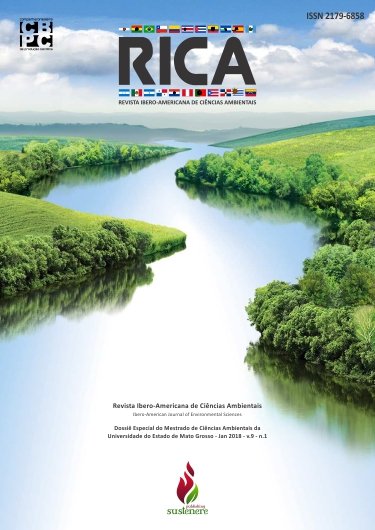Hydroeletric in the rivers that form pantanal: threats to conservation and to Pantanal traditional socio-environmental and economic relations
DOI:
https://doi.org/10.6008/CBPC2179-6858.2018.001.0009Keywords:
Socioenvironmental Impacts, Hydroelectric, PantanalAbstract
The study analyzes and questions the implantation of hydroelectric plants in the plateau surrounding the Pantanal plain. There were identified 165 enterprises, among those that are in operation (45), granted (11), available axis (56), Environmental Basic Plan accepted (47) and with registration (02), besides suspended projects (02) and revoked (02). Of this amount, 116 projects are under analysis process, especially in Mato Grosso, accountable for most part of the water that supply the entire system of the Bacia do Alto Paraguai/Pantanal Mato Grossense. It is observed that, for implementation of the enterprises, there is no planning in the hydrographic basin regarding the ecological issue, the pre-existing populations and their socioeconomic activities. Of the total of 169 enterprises, most are small hydroelectric plants, many in the same river. There is apprehension in civil society and scientific community, because the public managers favor the activity of hydroelectric power generation, alleging the growing demand of the country, favoring the electric sector in detriment of the existence of other preponderant and traditional uses of the region that have as economy, the professional-artisanal fishing, tourism – in its various aspects (ecological, fishing, cultural, rural, community-based, adventure, etc.) and traditional livestock, practices that coexist with the environmental balance of the biome as its hydro ecological operation and enjoy it. Such activities are the main responsible for the job generation and income in the region, besides the fishing guarantee the traditional populations’ food security. It is concluded that the implementation of Small Hydro Power (SHP) will bring social and environmental problems and implications to a fragile environment of high social importance and its preservation must be guaranteed by legislation. It proposes dialogue and alternatives to the energy exploration development model.
Downloads
Downloads
Published
Issue
Section
License
The CBPC - Companhia Brasileira de Produção Científica (Brazil CNPJ: 11.221.422/0001-03) the material rights of the published works. The rights relate to the publication of the work anywhere in the world, including rights to renewals, expansions and dissemination of the contribution, as well as other subsidiary rights. All electronically published works may subsequently be published in printed collections under the coordination of this company and / or its partners. The authors preserve the copyright, but are not allowed to publish the contribution in another medium, printed or digital, in Portuguese or in translation.









